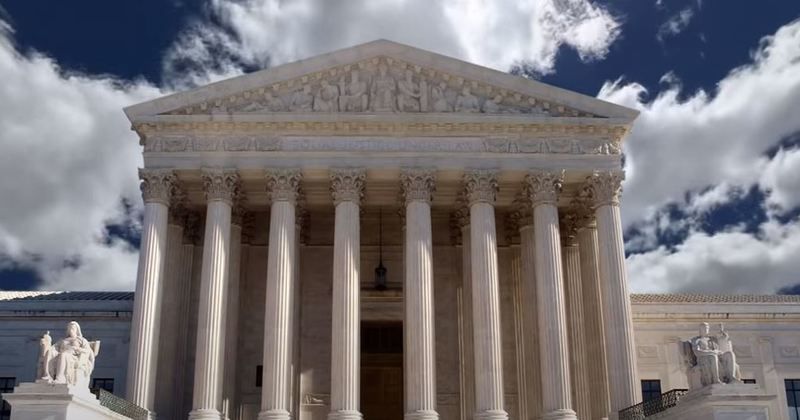Three members of Congress sent a joint letter to the Judicial Conference indicating they are evaluating judicial “reforms” following controversial conduct in a case challenging one of President Donald Trump’s executive orders on immigration. An attorney personally called a judge seeking favorable treatment and attempted to dictate a timeline for the case.
“The Committee has jurisdiction over federal courts and judicial proceedings,” the letter states. “Pursuant to this authority, the Committee is considering potential legislative reforms to judicial proceedings.”
The May 6 letter was signed by Rep. Jim Jordan, R-Ohio, chairman of the Judiciary Committee; Rep. Darrell Issa, R-Ohio, chairman of the Subcommittee on Courts, Intellectual Property, Artificial Intelligence, and the Internet; and Chip Roy, R-Texas, chairman of the Subcommittee on the Constitution and Limited Government. It inquires what the Judicial Conference intends to do to reinforce the ban on attorneys engaging in private communications with judges.
Shortly after Trump issued a March 14 proclamation invoking the Alien Enemies Act to deport Venezuelan nationals linked to the designated foreign terrorist organization Tren de Aragua, the American Civil Liberties Union (ACLU) and Democracy Forward Foundation filed a lawsuit in the U.S. District Court for the District of Columbia on behalf of five Venezuelans facing removal.
Chief Judge James Boasberg issued multiple rulings, including two temporary restraining orders (TROs). One blocked the deportation of the five Venezuelans, while the other halted the nationwide implementation of Trump’s proclamation. These TROs were later overturned by the U.S. Supreme Court, which ruled Boasberg lacked jurisdiction.
Despite the Supreme Court’s decision, Boasberg continued holding hearings, including an emergency session on April 18 to review another ACLU TRO request. Meanwhile, the ACLU pursued similar cases nationwide. Judge James Hendrix of the Northern District of Texas denied a TRO on April 17. According to the letter, an ACLU lawyer representing the petitioners called Judge Hendrix at 7:34 p.m. seeking a stay of removal.
Hendrix did not answer. “The lawyer left a voicemail discussing ‘substantive matters’ about the case, including requesting the judge to issue an order. Such ‘substantive ex parte communications with the Court are prohibited,’” the letter noted.
Hendrix reprimanded the lawyer, instructing them to avoid ex parte communications in the pending matter. After receiving no response, the petitioners filed a second TRO motion at 12:34 a.m. on April 18, 2025.
“Hendrix ordered the government to respond within 24 hours. But later that day, at 12:48 p.m., before the government could respond, the ACLU filed another motion demanding that Hendrix either issue a TRO or hold a status conference by 1:30 p.m. — 42 minutes after first requesting the conference — or else they would seek appellate relief,” the letter explained.
“This series of events raises several concerns. First, the rapid pace of these proceedings prevents courts from adequately developing the factual record, both for consideration at the trial level and review at the appellate level. In particular, the ACLU’s breakneck appeal to the Fifth Circuit prevented Judge Hendrix from developing any sort of meaningful record because it divested him of jurisdiction,” the letter concluded.
Beth Brelje is an elections correspondent for The Federalist. She is an award-winning investigative journalist with decades of media experience.
 Telegram is where we really talk. Don't miss out!
Telegram is where we really talk. Don't miss out!







